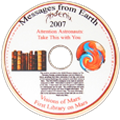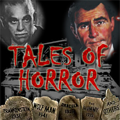
 Invasion of the Body Snatchers
Invasion of the Body Snatchers
By Jack Finney; Read by Kristoffer Tabori
6 CD – 6.5 Hours [UNABRIDGED]
Publisher: Blackstone Audio
Published: 2007
ISBN: 9780786157815
Themes: / Science Fiction / Invasion / Aliens /
“I warn you that what you’re starting to read is full of loose ends and unanswered questions….Now if you don’t like that kind of story, I’m sorry, and you’d better not read it. All I can do is tell what I know.”—from the book
On a quiet fall evening in the small, peaceful town of Mill Valley, California, Dr. Miles Bennell discovered an insidious, horrifying plot. Silently, subtly, almost imperceptibly, alien life-forms were taking over the bodies and minds of his neighbors, his friends, his family, the woman he loved—the world as he knew it.
First published in 1955, this classic thriller of the ultimate alien invasion and the triumph of the human spirit over an invisible enemy inspired the acclaimed 1956 film, directed by Don Siegel and starring Kevin McCarthy, one of Time magazine’s 100 Best Films.
The image of Donald Sutherland at the end of the 1978 film Invasion of the Body Snatchers—mouth yawning open, eyes rolled back, finger stabbing at the screen—haunted me throughout my childhood. I stumbled onto the now iconic scene while watching television one day and it absolutely traumatized me. I found that alien shriek terrifying, and I still do.
It was with that chilling image gnawing at my mind that I began listening to the audiobook of 1955’s Invasion of the Body Snatchers by Jack Finney, upon which the Sutherland and as well as earlier (1956) film are based. I found out early on that, while lacking the visceral fear of the 1978 film, the novel evokes a deeper sense of dread, and also packs some literary and historic heft, including a deft examination of the political landscape of 1950’s America.
While I went into Body Snatchers listening for pure story alone, its subtext was undeniable. Body Snatchers was written during the height of McCarthyism, and you don’t have to try to look for parallels—Body Snatchers is as much a reaction to the existential threat of Communist Russia as it is a book about battling alien invaders.
But Body Snatchers is no simple allegory of the Red Scare, either. Finney also provides a nostalgic snapshot of a simpler time, infusing the story with elements that are largely fond relics these days—soda jerks, doctors’ home visits, and shoe-shine men, for example. Finney sets the book in 1976, but perhaps he sensed that, even in the mid-50’s, those elements of small town America were already starting to fade away. You can’t help but feel a sense of sadness and loss amid the growing horror.
For those who are unfamiliar with the plot of Invasion of the Body Snatchers, it’s a tale about an alien race of seed pods who drift through space, seeking out planets whose life they imitate with perfect simulacrums while the host body is absorbed.
The book opens with the narrator, Miles Bennel, living a quiet, uneventful life as a doctor in the small California town of Santa Mira. But soon a creeping, icy fear begins that builds deliciously over the course of the book, rising to near-panic when we learn the magnitude of the invasion. Remember that this is 1950’s style horror, so there’s no overt bloodshed or gore. But who needs splatterpunk when you’re confronted with an alien, parasitic race intent on consuming all life on the planet? Try to imagine the suffocating paranoia and slowly awakening terror of discovering that people all around you that you thought you new—teachers and sales clerks, husbands and wives—are being replaced by emotionless clones. And no one believes you.
Kristoffer Tabori reads the audio version of Invasion of the Body Snatchers and does a wonderful job. He also shares in an interview on the final disc that his father, Don Siegel, directed the original 1957 film by the same name.
This is not a book without some flaws, however. One weakness is the spread of the aliens. At the risk of divulging a minor spoiler, the seed pods absorb their hosts’ bodies by growing in close proximity to their victims, typically in the basement of their homes. The process can take hours or days (how long is never revealed), but it begs the question: If Bennel and his friends managed to stumble upon a clone before it came fully to life, how come more Santa Mira residents didn’t do the same? Are we supposed to believe that every home has a convenient hiding hole in its basement capable of concealing three-foot long green vegetable pods? Also, the ending of the book was a bit of a let-down. I won’t spoil it, but suffice to say it felt a bit tacked-on and unsatisfying.
But, overall, Invasion the Body Snatchers is well-written and thought-provoking sci-fi/suspense, and a fine way to pass the time while commuting amidst the rest of the soulless conformists “packed like lemmings into shiny metal boxes” on their way to the office.
Posted by Brian Murphy








